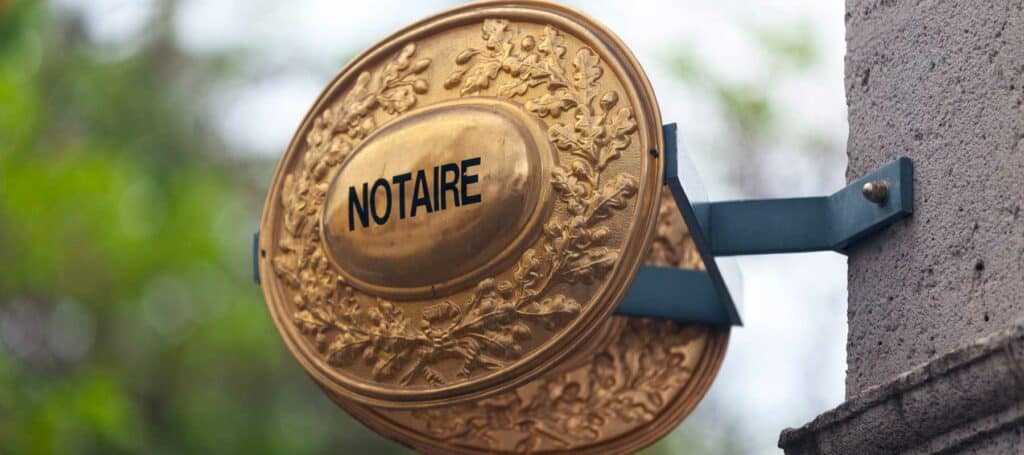A Guide To Selling Your Property In France.
If you are looking to invest as an expat or high-net-worth individual, which is what I specialize in, you can email me (advice@adamfayed.com) or use WhatsApp (+44-7393-450-837).
Table of Contents
Introduction
Are you thinking of selling your property in France? Prior to the Coronavirus pandemic in early 2020, France’s real estate market was growing, with several regions of the nation experiencing growth close to double digits.
Although COVID-19 had a significant negative impact on the economy, prospective purchasers weren’t put off since France’s real estate market has continued to expand, albeit more slowly, with home prices rising in the most sought-after areas.
Things to Consider Before Selling Your Property in France
You can be required to pay capital gains tax, which is a tax on your earnings, if you want to sell your French home. Your capital gains tax payment schedule will also alter, in addition to the amount you pay.
Despite Brexit, there are still some things that cannot change, such as French capital gains. Important factors include:
- When selling your property in France, you must appoint a French notaire since only the notaire has the authority to transfer the property between parties.
- VAT is no longer due when selling a property that is less than five years old.
- You will be required to sign a compromis de vente (buying contract) as well as an acte de vente (conveyance deed). These contracts bind both the vendor and the buyer legally.
- If the value of the property you are selling exceeds €150,000, you must designate a tax agent in France.
- As a seller, you will be in charge of organizing and delivering technical papers about the property’s status. For example, gas and electricity reports, as well as energy reports.
Capital Gains Tax
If you are selling your property in France, you can be subject to capital gains tax.
If it is your primary residence, no capital gains tax is due.
This just means that you had to have been using it regularly before the sale, not necessarily that you had to be occupying it at the time. You will need valid justifications, however this indulgence may be granted for up to a year.
Additionally, there are other, more specific exemptions for low-income senior people, divorced and separated spouses, and non-residents who have previously lived in France for at least two years.
If you are found accountable, the amount owed will be your net proceeds less selling transaction fees. Certain substantial remodeling expenditures are also deductible if they are completed by a certified builder.
Non-residents from outside the EEA may also be required to designate a ‘fiscal representative,’ which may be a difficult and costly procedure.

8-Step Process of Selling Your Property in France
1. Find a real estate agent or sell the property on your own.
In France, using an estate agent is not required, and over 40% of all residential real estate transactions take place privately. Using internet listing sites and real estate portals, you may sell your house without using an estate agent, saving money on their fees.
However, you might wish to use an estate agent’s local skills and specialized understanding. Additionally, they’ll manage negotiations, viewings, and other crucial jobs that could not be achievable if you don’t really reside in France when selling your property in France.
The easiest approach to finding a property agent (agent immobiliers) is through a personal suggestion from a friend or member of your family. Otherwise, look for someone who belongs to a professional organization like the FNAIM, UNIS, SNPI, or CNAB. All real estate agents in France are required to be licensed and possess a carte professionnelle.
2. Conduct the required property surveys.
The required legal surveys and inspections are among the more onerous aspects of selling your property in France.
The Dossier de Diagnostic Technique is what these are known as (DDT). The DDT includes a wide variety of tests, such as:
- Lead and asbestos
- Gas installations and electrical wiring
- Septic tanks (if applicable)
- Energy efficiency
- Termites
- Natural or industrial risks
- Swimming pool security (if applicable)
Prior to selling your property in France, the necessary DDT testing must be completed. The energy efficiency study is the only requirement that must be met before the property is put on the market. To ensure that no test expires prior to the completion of the sale agreement, you must also verify each test’s validity.
3. Enlist your property on the market.
It’s now time to list your home on the market and begin luring purchasers. The majority, if not all, of the advertising work should be handled by your estate agent, but private sellers must make sure they advertise their home in as many places as they can.
4. Appoint a notary.
In French real estate sales, the role of the notary (notaire) is important. They take on the role of the conveyancing solicitor, ensuring that all the formalities and paperwork are completed in accordance with the law.
Normally, the notaire represents both the buyer and the seller. Although the state-appointed notary will still play a crucial role in the procedure, you can still opt to consult with your own property lawyer. They’re most likely going to only speak French, therefore you could need a translation or an English-speaking lawyer to help you.
You don’t have to worry about comparing prices or haggling costs because the notary is designated on a nationwide level. A notary should be easy to appoint because rates are often predetermined.

5. Draft and sign the Purchase Agreement.
An agreement to purchase (Compromis de Vente) will be drafted once you have accepted a buyer’s offer. This is done by the estate agent or the notary and often takes place a week after a verbal offer has been made and accepted.
Any pre-sale restrictions and stipulations that the buyer and seller like to include are negotiated into the agreement by their respective representatives. After the contract is signed, there is a 10-day “cooling off” period during which any side may change their mind.
6. The buyer pays the deposit.
The buyer pays a deposit, which is kept by a notary, following a 10-day “cooling-off” period. It’s not uncommon for the deposit to be as low as 5% of the transaction price, although this amount is often about 10%.
In the event that any party cancels the transaction at this time, penalties will apply5. The buyer will forfeit the deposit in the event of a change of heart. However, if the seller backs out of the agreement, they must repay the deposit and may also be responsible for an additional 10% of the sale price in damages.
7. Statutory disclosures.
You have a legal obligation as the seller to reveal any unrecognized flaws in the property as well as any easements, limitations, tenancies, licenses, and planning approvals. In the event that you fail to do this and the property is sold with a hidden flaw, a court may deem the transaction worthless. You can even be required to give the buyer compensation.
8. Sign the Act of Sale.
You’re getting close. The Acte de Vente, the final purchase paperwork, must be signed in person at a meeting (at the notary’s office in France). Once the contract has been signed by all parties, the keys and the ownership of the home will be transferred.
The remaining money will be paid to you through arrangements made with the notaire. We’ll examine the best method for transferring this sum to your UK bank account in a minute.
Pained by financial indecision? Want to invest with Adam?

Adam is an internationally recognised author on financial matters, with over 760.2 million answer views on Quora.com, a widely sold book on Amazon, and a contributor on Forbes.



